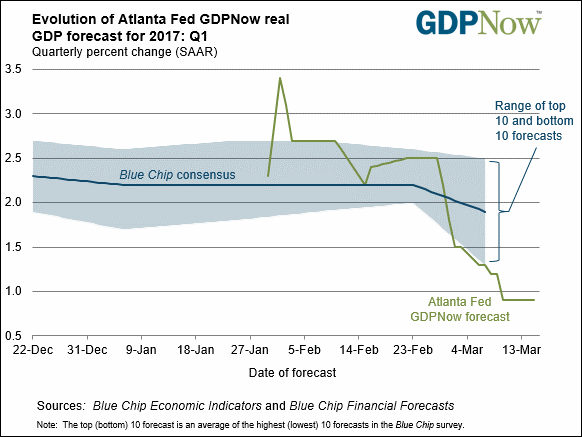The spike of earnings that hides behind the recent equity run-up has a lot to do with peculiar business incentives.
Micro incentives can have deep macro implications.
This post drives you through several financial institutions such as Société Générale, the BIS or the IMF. It underpins some of the blog’s usual suspects : micro and macro-credit, equity valuation, financial stability and a truly ‘paradoxical’ normalization of monetary policy.
More importantly for investors, it leaves the following question wide open: can corporate earnings be left unattended ?
To start with, please consider the following article by Bloomberg: “The great credit party is almost over, Société Générale says”:
(emphasis added)
“ We expect next year to be a transition year, when the ultra-low yield environment finally starts to lose its grip,” Societe Generale credit strategists Juan Esteban Valencia and Guy Stear wrote in a note. “The U.S. and the eurozone are heading for an economic slowdown in 2019, and given the rising levels of corporate leverage, this should have an impact on credit.”“Credit market slumps tend to be triggered by a single sector, such as telecommunications in 2002-3 and U.S. housing in 2007-8. Potential flashpoints going forward are China’s property market and U.S. technology, where balance-sheet leverage has grown sharply.“ |
True, China deserves our full attention. We shall revert to this side of the credit dynamics at the end of this post.
But beforehand debt, credit, market valuation and a very ‘paradoxical tightening’ are at the menu of the latest BIS quarterly review.
Monetary normalisation looks so beautifully anticipated that it … fails to do what it is supposed to do: normalize monetary conditions.
From the review
(bold ours):
| “The recent decline in term premia is even more puzzling than in 2005, as the current balance sheet run-off process is specifically aimed at decompressing term premia that were squeezed by the large-scale asset purchases (LSAPs).
The difference between the last two episodes and that of 1994 reflects shifts towards greater gradualism and predictability in the Fed’s tightening strategies. The Fed’s moves in 1994 were steep and less thoroughly communicated to markets. By contrast, gradualism and predictability have characterised the current tightening cycle, with respect to both the policy rate and balance sheet adjustment.” |
So gradualism and predicatibility, then again two legitimate children of modern forward guidance, would have some renewed unintended consequences ?
Some of you might wonder about the ‘secondary effects’ of a non-normalizing normalization. We have a hint: financial stability.
Claudio Borio and the BIS’ rationale give some very interesting highlights about macro guidance, micro incentives and financial stability. Unsuprisingly, one should look at corporate finance to get some sense of the inner-working of micro incentives: dividend distributions, share buy-backs – sorry stock repurchases – and obviously stock market valuation are all flashing violet.
From the BIS :
| “High dividends per share were also supported by stock repurchases. Except for a short interlude in 2008-09, share repurchases have been very large since the early 2000s (bottom left-hand panel). When and if interest rates begin to rise, corporates may have the incentive to tilt their capital structure back to equity, or at least to reduce stock repurchases, which could raise further questions about stock market valuations.” |
We suggest:
- Borio is right, equity valuation is a direct function of modern monetary guidance. As highlighted here, this is almost a matter of definition.
- The current non-normalizing normalization of monetary policy, Borio refers to a paradoxical tightening, is indeed related to a new level of policy communication.
‘Gradualism and predictability’ look like the background Mrs. Yellen’s ‘paint dry’. - Low interest rates and a lack of investment alternatives are at the origin of an unconventional earnings’ run-up.
This is a not a real process but a financial one that leverages very peculiar financial conditions. - Additional fiscal guidance and the promise of significant public investments have also been boosting share buy-backs.
There again, this has been rapidly discounted into financial figures, but may prove difficult to translate into hard investments. - Société Générale has a point : at this level of corporate leverage credit is priced for perfection. Growth expectations are atop while ex-energy, hard data point to a declining trend of growth.
- Guidance and incentives are two faces of the same policy coin: excessive guidance lead to poor and short-term corporate incentives, …
- … which in turn lead to macro-financial stability issues.
This brings us back to our initial question: can corporate earnings be left unattended ?
At the crossroad of the topics covered in this note, the IMF provides a timid answer.
Please consider ‘Improving Financial Stability in China‘ from the IMF Blog, a summary of the latest ‘Financial System Stability Assessment’ for China:
(emphasis added)
| “Taken together, these factors have created a highly dynamic and fast-moving financial system that is very difficult to monitor. Removing implicit guarantees—allowing markets to fall, firms to fail, and investors to lose money—is particularly challenging. Better social safety nets, financial education, and improved bankruptcy procedures will help. But credit growth will not slow sustainably unless tolerance for job losses and slower economic growth rises, particularly at local level, and new sources of revenue are found for local governments.” |
That is precisely the price of financial stability: less leverage, less (credit-driven) growth, less ‘implicit guarantees’ and, closer to our investment focus, ‘allowing investors to lose money’.
See the point? If this holds for China, why not for the rest of the world ? Or to put it in different terms: assuming the IMF recommendations do materialize, what would be the consequences on credit, growth and corporate earnings throughout the world ?
Jacques








